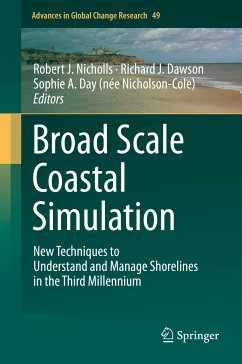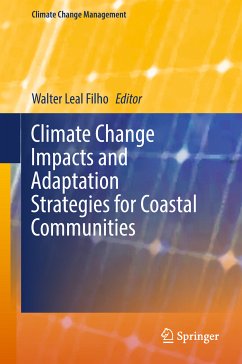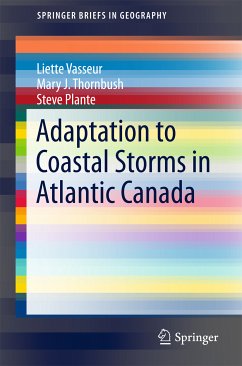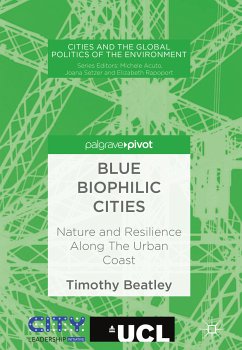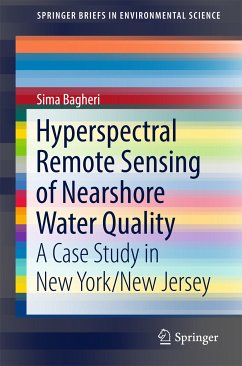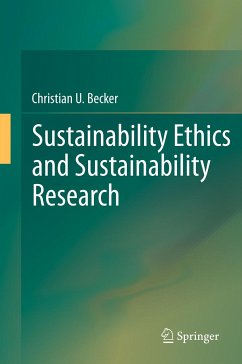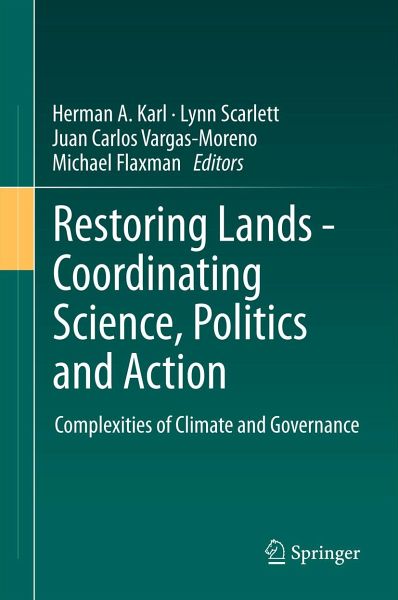
Restoring Lands - Coordinating Science, Politics and Action (eBook, PDF)
Complexities of Climate and Governance
Redaktion: Karl, Herman; Flaxman, Michael; Vargas-Moreno, Juan Carlos; Scarlett, Lynn
Versandkostenfrei!
Sofort per Download lieferbar
112,95 €
inkl. MwSt.
Weitere Ausgaben:

PAYBACK Punkte
56 °P sammeln!
Environmental issues, vast and varied in their details, unfold at the confluence of people and place. They present complexities in their biophysical details, their scope and scale, and the dynamic character of human action and natural systems. Addressing environmental issues often invokes tensions among battling interests and competing priorities. Air and water pollution, the effects of climate change, ecosystem transformations-these and other environmental issues involve scientific, social, economic, and institutional challenges. This book analyzes why tackling many of these problems is so di...
Environmental issues, vast and varied in their details, unfold at the confluence of people and place. They present complexities in their biophysical details, their scope and scale, and the dynamic character of human action and natural systems. Addressing environmental issues often invokes tensions among battling interests and competing priorities. Air and water pollution, the effects of climate change, ecosystem transformations-these and other environmental issues involve scientific, social, economic, and institutional challenges. This book analyzes why tackling many of these problems is so difficult and why sustainability involves more than adoption of greener, cleaner technologies. Sustainability, as discussed in this book, involves knowledge flows and collaborative decision processes that integrate scientific and technological methods and tools, political and governance structures and regimes, and social and community values. The authors synthesize a holistic and adaptive approach to rethinking the framework for restoring healthy ecosystems that are the foundation for thriving communities and dynamic economies. This approach is that of collective action. Through their research and practical experiences, the authors have learned that much wisdom resides among diverse people in diverse communities. New collaborative decision-making institutions must reflect that diversity and tap into its wisdom while also strengthening linkages among scientists and decision makers.
From the pre-publication reviews:
"Finally, we have a book that explains how science is irrelevant without people. It's people who decide when and how to use science, not scientists. This book gives us a roadmap for how to really solve complex problems. It involves hard work, and creating new relationships between scientists and the public that don't typically exist in our society."
-John M. Hagan, Ph.D.
President, Manomet Center forConservation Sciences
From the pre-publication reviews:
"Finally, we have a book that explains how science is irrelevant without people. It's people who decide when and how to use science, not scientists. This book gives us a roadmap for how to really solve complex problems. It involves hard work, and creating new relationships between scientists and the public that don't typically exist in our society."
-John M. Hagan, Ph.D.
President, Manomet Center forConservation Sciences
Dieser Download kann aus rechtlichen Gründen nur mit Rechnungsadresse in A, B, BG, CY, CZ, D, DK, EW, E, FIN, F, GR, HR, H, IRL, I, LT, L, LR, M, NL, PL, P, R, S, SLO, SK ausgeliefert werden.



